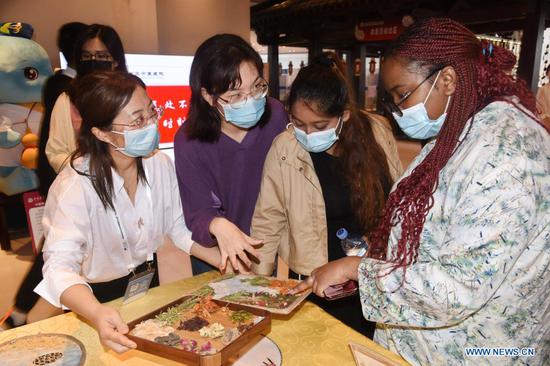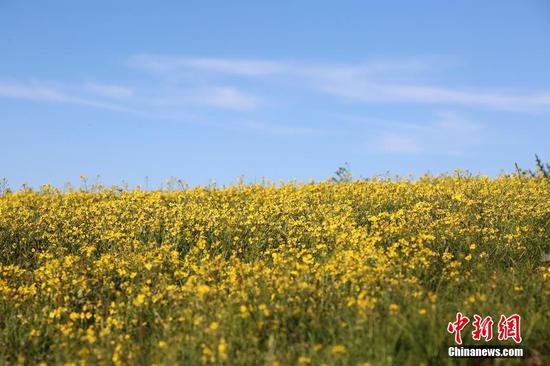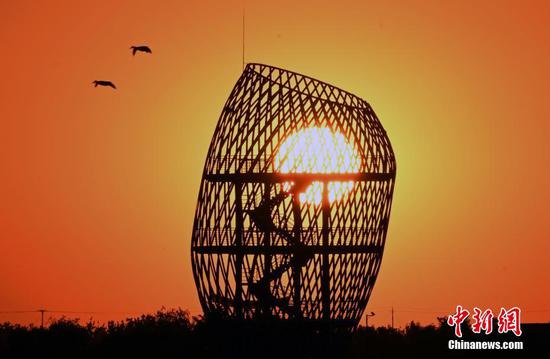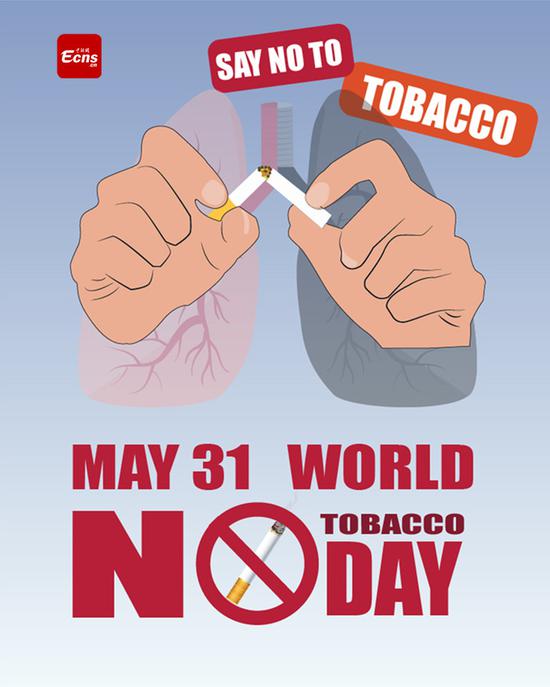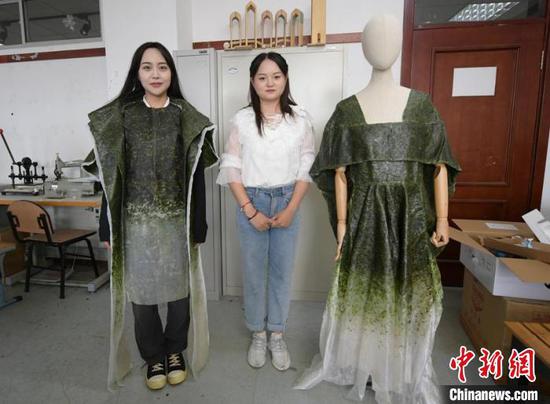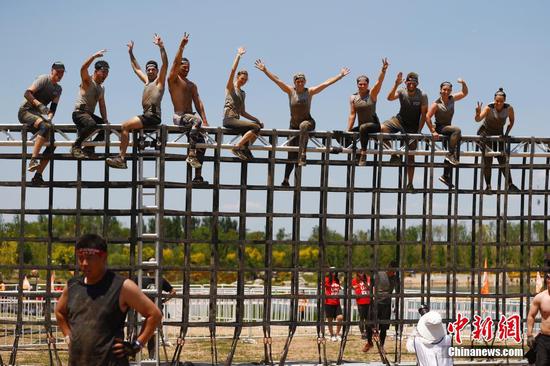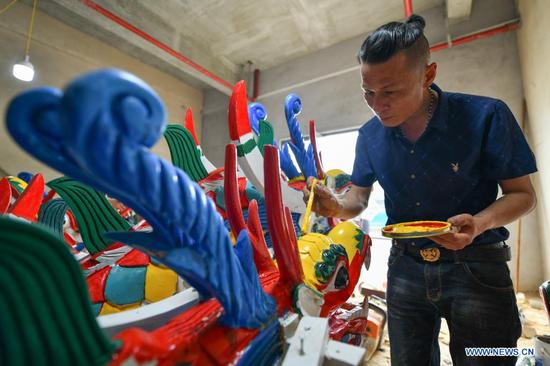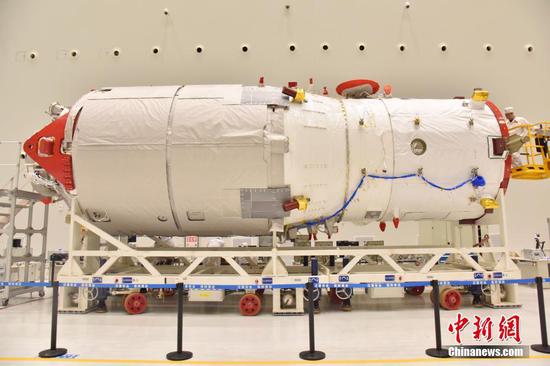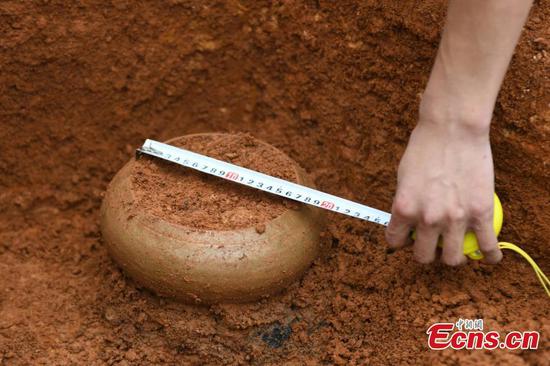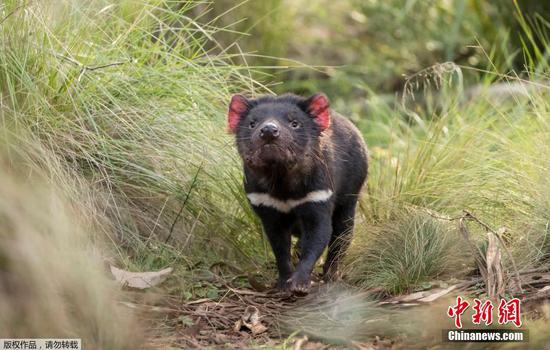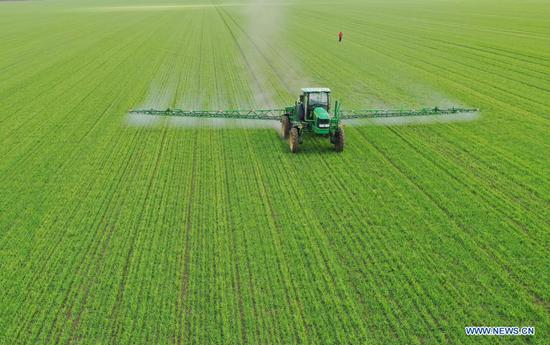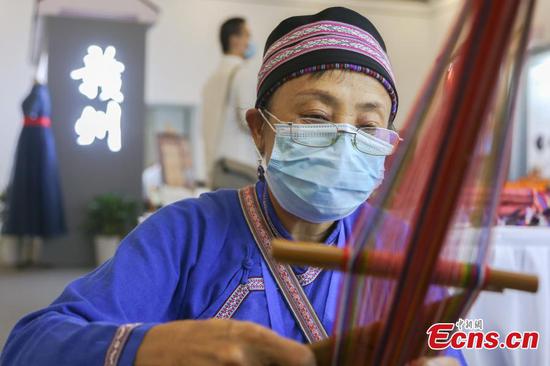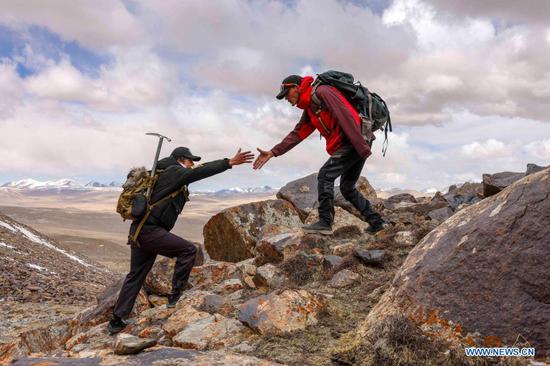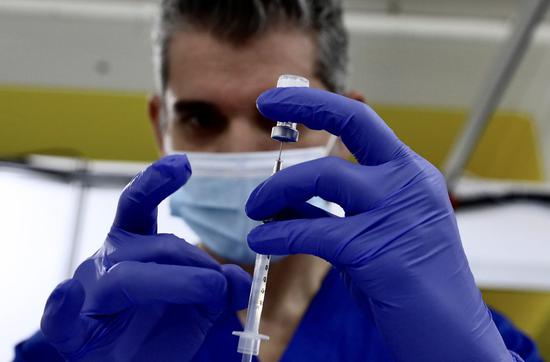
A health care worker prepares a dose of COVID-19 vaccine at a new vaccination site in the California Polytechnic State University in Pomona, Los Angeles County, California, the United States, Feb. 5, 2021. (Xinhua)
U.S. researchers have started a clinical trial to test what happens when adults who have been fully vaccinated with one type of COVID-19 vaccine receive booster doses of a different COVID-19 vaccine.
The trial aims to determine the safety and immunogenicity of mixed boosted regimens, according to the U.S. National Institutes of Health (NIH).
The trial will include about 150 adults who have been fully vaccinated with one of the three approved COVID-19 vaccines in the United States, the Johnson &Johnson, Moderna or Pfizer vaccines.
Each vaccine group will enroll about 25 people aged 18 to 55 years, and about 25 people aged 56 years and older. Twelve to 20 weeks following their initial vaccination regimen, participants will receive a single booster dose of the Moderna COVID-19 vaccine as part of the trial.
People who have not received COVID-19 vaccine are also eligible to enroll in the trial in a separate cohort. These volunteers will initially receive the two-dose Moderna COVID-19 vaccine regimen, and will be assigned to receive a booster dose of a vaccine about 12 to 20 weeks later, according to the NIH.
Trial investigators will evaluate participants for safety and any side effects after vaccination. Participants also will be asked to provide blood samples periodically so that trial investigators can evaluate immune responses against current circulating strains of SARS-CoV-2, as well as emerging variants, according to the NIH.
Initial trial results are expected in late summer this year.










